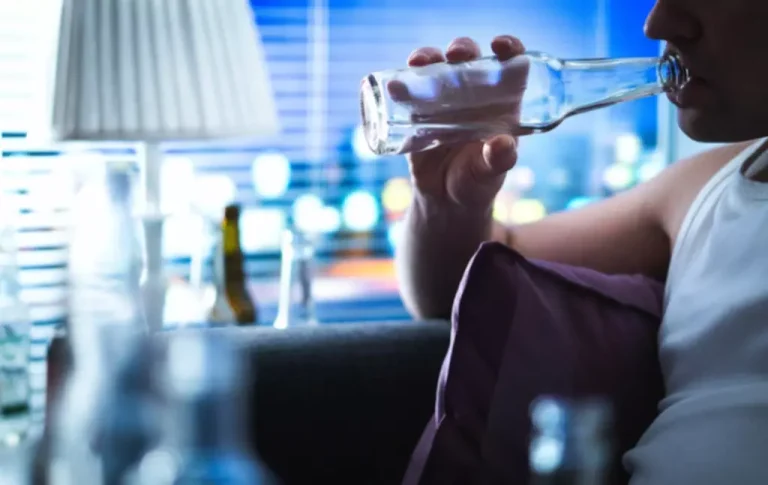Sober Living
Alcohol and Anger: Symptoms and Management

You may still be dealing with the stages of denial, anger, bargaining, and depression before finally reaching the point of accepting the absence of alcohol in your life. Some people have a genetic variation of the serotonin 2B receptor gene HTR2B. Another study of 249 heavy drinkers similarly found that alcohol intoxication predicted higher levels of IPV in those who reported low psychological flexibility (Grom et al., 2021). Plus, we’re always introducing new features to optimize your in-app experience. We recently launched our in-app chatbot, Melody, powered by the world’s most powerful AI technology.
Is Alcohol the Sole Cause of Rage in Alcoholics?
Since your judgment becomes clouded when you’re intoxicated, a simple misunderstanding can quickly turn into a bar fight. Furthermore, an angry drunk may not feel like consequences matter, making it seem like a good idea from their perspective to create or partake in a dangerous situation. Unfortunately, feeling aggressive from alcohol can stem from more than one variable that’s beyond your control.
How Alcohol Affects Anger and Aggression
Alcohol used to provide temporary relief from such feelings, but you can’t rely on that anymore. To curb alcohol-fueled rage, it helps to know how you respond to drinking. Those expectations can also arise from what we’ve learned about alcohol from family members and peers. If you had a parent who was frequently enraged while drunk, you may expect that response in yourself when drinking and therefore exhibit it. Using a personality questionnaire, an aggression scale, and alcohol use and history assessments, researchers compared 156 people without the gene with 14 people who have it. Researchers were studying people in the Finnish population, of which more than 100,000 people have the genetic variation.
Addiction Treatment Programs
Other holistic methods are often used during a comprehensive addiction and anger management treatment program as adjunctive, or complementary, treatment methods. Massage therapy can help to relieve physical tension and therefore promote mental clarity. Expressive therapies provide healthy, and often nonverbal, outlets for the expression of negative and difficult emotions. Alcohol withdrawal can be potentially life-threatening, in the case of severe dependence.

If You Live with an Angry Drunk, What Can You Do?
- The physical dependence on the alcohol and the scramble to remain numb often leads alcoholics to blame, manipulate, or bully family members and loved ones until their, now physical need is satisfied.
- When they come out, others notice them because they’re not a part of the everyday social experience.
- They aim to address the overall health and well-being of drug users and provide comprehensive support for related health problems.
- It affects parts of your brain responsible for movement, memory, self-control, and basic functions like hunger and thirst.
- It is recommended to inquire about financial assistance options or explore charities that might provide affordable or free treatment services available to you.
- If you live with underlying anger challenges, for example, it may not be as noticeable when you’re sober because your frontal lobe allows you to manage your emotions and your behaviors.
However, it can be important for your mental health and overall well-being to prioritize your own needs when angry interactions get to be too much. With IED, a person’s level of aggression is significantly out of proportion to the situation and is impulsive and anger-based. This doesn’t mean rageaholic symptoms alcoholic rage syndrome aren’t real, or that the uncontrollable flashes of anger you experience aren’t significant. Extreme happiness, or euphoria, is another common experience during drinking. As a positive, unalarming emotion and one that others are used to seeing, however, happiness isn’t on the radar as much as anger.
And our orbitofrontal cortex (OFC), which is part of the PFC, helps calm feelings of rage and aggression. The PFC region of the brain is where we make judgment calls about potential behavior before acting on it. When alcohol https://ecosoberhouse.com/ impairs this area, a person may be more likely to behave in a way they wouldn’t while sober, including getting confrontational (2). Intimate partner violence is of great concern when it comes to alcohol and anger.
- An example of this might be if they feel frustrated every time they see there’s laundry to be folded.
- Resenting the family member or friend for their dreams and punishing them by not being supportive, questioning their ability and striving to clip their wings of creativity.
- Alcohol impairs cognitive function, which means it is more difficult to problem-solve, control anger, and make good decisions when drinking.
- These explosive outbursts, which occur off and on, cause major distress.
Violence can occur in marriages, long-term partnerships, and dating relationships. This article discusses some of the facts behind the stereotype of the “angry drunk” and explores the connection between anger and alcohol. An earlier study found that alcohol use enhanced aggression primarily among individuals who showed a heightened disposition for such behavior (Eckhardt and Crane, 2008). They were directed to engage in a task with the potential to trigger aggressive verbalizations, with those who consumed alcohol showing significantly more such behavior.
How Does Alcohol Use Interact With Anger?
Residents at Sabino Recovery have found relief through individualized treatment programs and compassionate support. Seeking help is a crucial step in managing and overcoming this condition. 5) Call a friend who understands and cares about the difficult situation that you are dealing with.

Seek Anger Management Support Groups
It can even be productive because it tells us we need to address some things that aren’t going well in our lives. According to the National Council on Alcoholism and Drug Dependence (NCADD) alcohol more so than any other substance is a contributing factor in cases of rape, murder, spousal and child abuse, and assault. By implementing these changes, you’ll be better equipped to address your challenges head-on and create a healthier, more balanced life.


